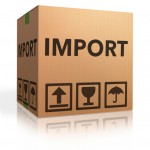
FDA releases draft guidance for Voluntary Qualified Importer Program to provide better market access for compliant Importers.
Are you aware that on June 6, FDA began asking for comments on the Voluntary Qualified Importer Program (VQPI)?
Under FSMA (Food Safety Modernization Act) signed into law in 2011, the FDA was given new authority to ensure that food imported into the U.S. met the same safety standards as those domestically produced.
This draft guidance document, issued last Friday, is intended for importers who achieve and maintain a high level of control over safety and security of their supply chain. These importers will be rewarded by having their shipments move quickly and efficiently across the border and into the U.S. market. These importers will also qualify because they have been certified under FDA’s Accredited Third Party Certification Regulations.
Guidance has been provided on:
The FDA is expecting 200 applications in the first year. The total administrative cost of the program includes application review for 200 applications, the cost of conducting inspections of importers (both foreign and domestic) accepted into the program, the cost of FDA’s final determination of eligibility into the program and annual Information Technology (IT ) maintenance costs. Using these assumptions, FDA estimates that the annual fee would be approximately $16,400. The goal is to allow small business to comment on the impact of such a fee on their business. Again it’s important to emphasize that this is not a mandatory fee but a voluntary fee for those importers that want to participate and take advantage of import privileges.
FDA wants feedback on whether a reduction in this fee should be considered. They are also evaluating whether annual sales should be part of the definition for small businesses and considering if larger importers should be charged greater fees .
An importer who has voluntarily agreed to participate in Voluntary Qualified Importer Program will meet the application and inspection criteria, including the facility certification for the Voluntary Qualified Importer Program offered for import. Once the application information is reviewed it is expected that the Voluntary Qualified Importer Program approved applicants will begin receiving the benefits of participation by October 2018.
Although the benefits of Voluntary Qualified Importer Program are significant , the information collection requirements on the importer is very extensive. Documents are required in several categories: documents for Voluntary Qualified Importer Program application, completion of Voluntary Qualified Importer Program application package, annual renewal of Voluntary Qualified Importer Program status, development of written procedures and other documentation of the Voluntary Qualified Importer Program Quality Assurance Program (QAP). The actual quality assurance program needs to include the information on company’s food safety system, food defense system, training and documentation of contracts that are connected to tasks within the program. Procedures also need to be in place for retention of records.
Keep in mind, dicentra’s regulatory and food safety specialists are available to assist you in this process. dicentra provides sought-after guidance on product and marketing compliance, quality assurance and safety standards, research and development, new ingredient assessments and overall regulatory strategies for food and health-related products sold in North American marketplaces